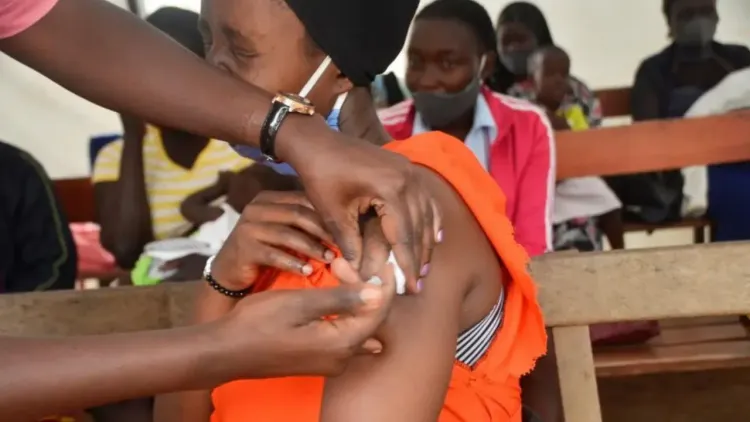Enigmatic Illness Inducing 'Severe Body Tremors' Impacts Approximately 300 Individuals in Uganda

New Delhi, Dec 16 (NationPress) Approximately 300 individuals in Uganda are reportedly suffering from an enigmatic illness that induces 'severe body tremors'.
This condition, referred to as 'Dinga Dinga' by locals in the Bundibugyo district, predominantly affects women and girls, according to Ugandan newspaper The Monitor.
The illness manifests symptoms such as fever and severe body tremors, which complicate mobility.
The current treatment involves antibiotics administered by community health teams, and fortunately, no fatalities have been reported thus far, Dr. Kiyita Christopher, the district health officer, stated.
'There is no scientific evidence that herbal medicine can treat this disease. We are utilizing specific treatments, and patients typically recover within a week. I encourage locals to seek treatment from health facilities in the district,' he explained.
The doctor pointed out that there have been no reported cases in surrounding areas beyond the Bundibugyo region.
He added that samples have been sent to the health ministry for further analysis. The nation's Health Ministry has yet to release an official statement regarding the condition.
The last similar occurrence was documented as the dancing plague of 1518, which transpired in Strasbourg, France. During that event, individuals danced involuntarily for extended periods, often leading to exhaustion and, in some cases, death.
In a related development, another African nation is experiencing a mysterious outbreak that has reportedly impacted around 400 individuals.
The Democratic Republic of the Congo (DRC) is facing an outbreak characterized by fever, headache, cough, runny nose, and body aches.
According to the World Health Organization (WHO), 394 cases and 30 fatalities have been recorded thus far in the Panzi health zone of the country.
The Xinhua news agency indicated that respiratory pathogens such as influenza or Covid-19 are being scrutinized as potential causes, alongside malaria, measles, and others.
Until laboratory test results are available, the origin of the condition remains unidentified, stated the WHO, which has joined the investigation into the undiagnosed disease earlier this month.










